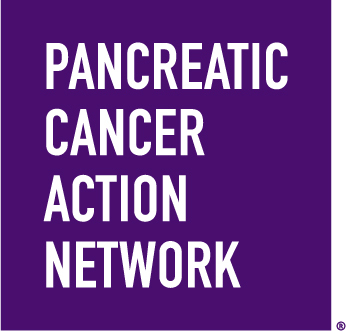In the next two decades, rankings of incidence and death across cancer types will undergo important changes in the U.S., according to new research by Cancer Commons and the Pancreatic Cancer Action Network in collaboration with The University of Texas MD Anderson Cancer Center.
Pancreatic Cancer Expected to Be Second Leading Cause of Cancer-Related Deaths in the U.S. before 2030
LOS ANGELES and MOUNTAIN VIEW, Calif., April 7, 2021 /PRNewswire/ -- In the next two decades, rankings of incidence and death across cancer types will undergo important changes in the U.S., according to new research by Cancer Commons and the Pancreatic Cancer Action Network (PanCAN) in collaboration with The University of Texas MD Anderson Cancer Center.
Published today in JAMA Network Open, the study estimates that pancreatic cancer is on course to become the second leading cause of cancer-related deaths in the U.S. before 2030 and by 2040, liver and intrahepatic bile duct cancer will surpass colorectal cancer to become the third most common cause of cancer-related deaths.
The study also estimates, by 2040, melanoma will surpass colorectal and lung cancers to become the second most common cancer type in the U.S. In conjunction with a substantial decrease in prostate cancer incidence, by 2040 the most common cancer types are estimated to be breast, melanoma, lung, and colorectal. This differs from the current ranking of breast, lung, prostate, and colorectal.
"Our findings reflect the shifting dynamics of cancer screening and treatment," said first study author Lola Rahib, PhD, Director of Scientific and Clinical Affairs at Cancer Commons. "This study underscores the need to invest in screening programs and address healthcare disparities in order to alter the future burden of cancer."
"We're encouraged to see the projected decreases in deaths from lung, colorectal and breast cancer in the coming years," said study co-author Lynn Matrisian, PhD, MBA, Chief Science Officer at PanCAN. "It's time to shift focus to some of the less commonly diagnosed cancers with the lowest survival rates, like pancreatic and liver cancer."
New estimates highlight impact of cancer screening
To generate the new estimates, the researchers combined the most recent U.S. Census Bureau population growth projections with ongoing trends in cancer incidence and death, including statistics for racial and ethnic groups. They also examined associations between the shifting estimates and cancer screening programs.
For instance, the estimated decrease in prostate cancer incidences is most likely due to changes in prostate-specific antigen (PSA)-screening recommendations over the last 15 years.
Similarly, an uptake of screening is associated with an estimated decrease in colorectal cancer incidences and deaths in the next two decades. However, not all individuals get screened for colorectal cancer as recommended.
"Utilizing screening to its full potential through education and elimination of healthcare disparity can further prevent colorectal cancer deaths substantially," Rahib said.
Indeed, despite the overall estimated decrease in colorectal cancer incidences and deaths, the study estimates a continuation of recent increases in these rates for younger patients aged 20-49. Within this age group, colorectal cancer will become the second most common cancer type by 2040, and by 2030, it is expected to surpass breast cancer to become the leading cause of cancer-related deaths.
"These estimates are alarming and ought to trigger an action plan to boost research funding and advocacy towards advancements in treatments and screening for this younger cohort," Rahib said.
Informing future research and care
To address the estimated increase in pancreatic cancer deaths, PanCAN is leading a comprehensive Early Detection Initiative, which aims to identify early symptoms of the disease and develop biomarkers to aid in early detection and monitoring. In addition, the organization is investing significant research dollars into Precision PromiseSM, an adaptive clinical trial seeking to accelerate treatment options for pancreatic cancer patients.
"We are not powerless to change the projection about rising deaths from pancreatic cancer, but it's important that we look at both ends of the spectrum from early detection to treatment," said Matrisian. "With PanCAN's Early Detection Initiative, we hope to shift most pancreatic cancer diagnoses to early stages when surgery is still possible, which will improve outcomes for patients and result in fewer deaths each year. For those patients already diagnosed, PanCAN's Precision Promise will help discover innovative new treatment options that are so desperately needed for this difficult disease."
Lung cancer will continue to be the leading cause of cancer-related death in 2040, but with a substantial decrease associated with reduced tobacco use and better screening programs.
Meanwhile, although breast cancer diagnoses will continue to increase, breast cancer deaths are estimated to decrease, continuing an ongoing trend that is most likely attributable to increased screening and advancements in treatment.
"Recent gains seen in breast cancer incidence and mortality have been more modest in underrepresented racial and ethnic groups," said senior study author Kevin Nead, MD, MPhil, Assistant Professor of Epidemiology and Radiation Oncology at MD Anderson. "There is likely an opportunity to accelerate our estimated decline in deaths by increasing access to high-quality breast cancer screening and treatment for all women."
These new estimates could also spur research efforts across many other cancer types, especially in light of persistent healthcare disparities.
"The COVID-19 pandemic has rapidly provided a sobering picture of healthcare disparity in our country," said Erika Vial Monteverdi, Executive Director of Cancer Commons. "We in the cancer community need to come together and act on what we've learned over the past year to address disparities that affect cancer patients."
About the Pancreatic Cancer Action Network
The Pancreatic Cancer Action Network (PanCAN) leads the way in accelerating critical progress for pancreatic cancer patients. PanCAN takes bold action by funding life-saving research, providing personalized patient services and creating a community of supporters and volunteers who will stop at nothing to create a world in which all pancreatic cancer patients will thrive. For the latest organization updates visit pancan.org and follow PanCAN on Facebook, Twitter, and Instagram.
About Cancer Commons
Cancer Commons is a nonprofit patient advocacy organization that provides hope to advanced cancer patients by helping them identify and access their best possible treatment. Their highly customized experience connects patients with a collaborative network of nurse navigators, PhD scientists, and national experts. For more information, visit cancercommons.org.
Media Contacts:
Jillian Scholten, Senior Public Relations Manager
Pancreatic Cancer Action Network
Direct: 949-244-2561| E-mail: jscholten@pancan.org
Patrick van der Valk, Head of Marketing
Cancer Commons
Direct: 415-692-5258 | E-mail: patrick.vandervalk@cancercommons.org
![]() View original content to download multimedia:http://www.prnewswire.com/news-releases/rankings-of-most-common-and-deadly-cancer-types-will-shift-over-next-two-decades-301263943.html
View original content to download multimedia:http://www.prnewswire.com/news-releases/rankings-of-most-common-and-deadly-cancer-types-will-shift-over-next-two-decades-301263943.html
SOURCE Pancreatic Cancer Action Network






